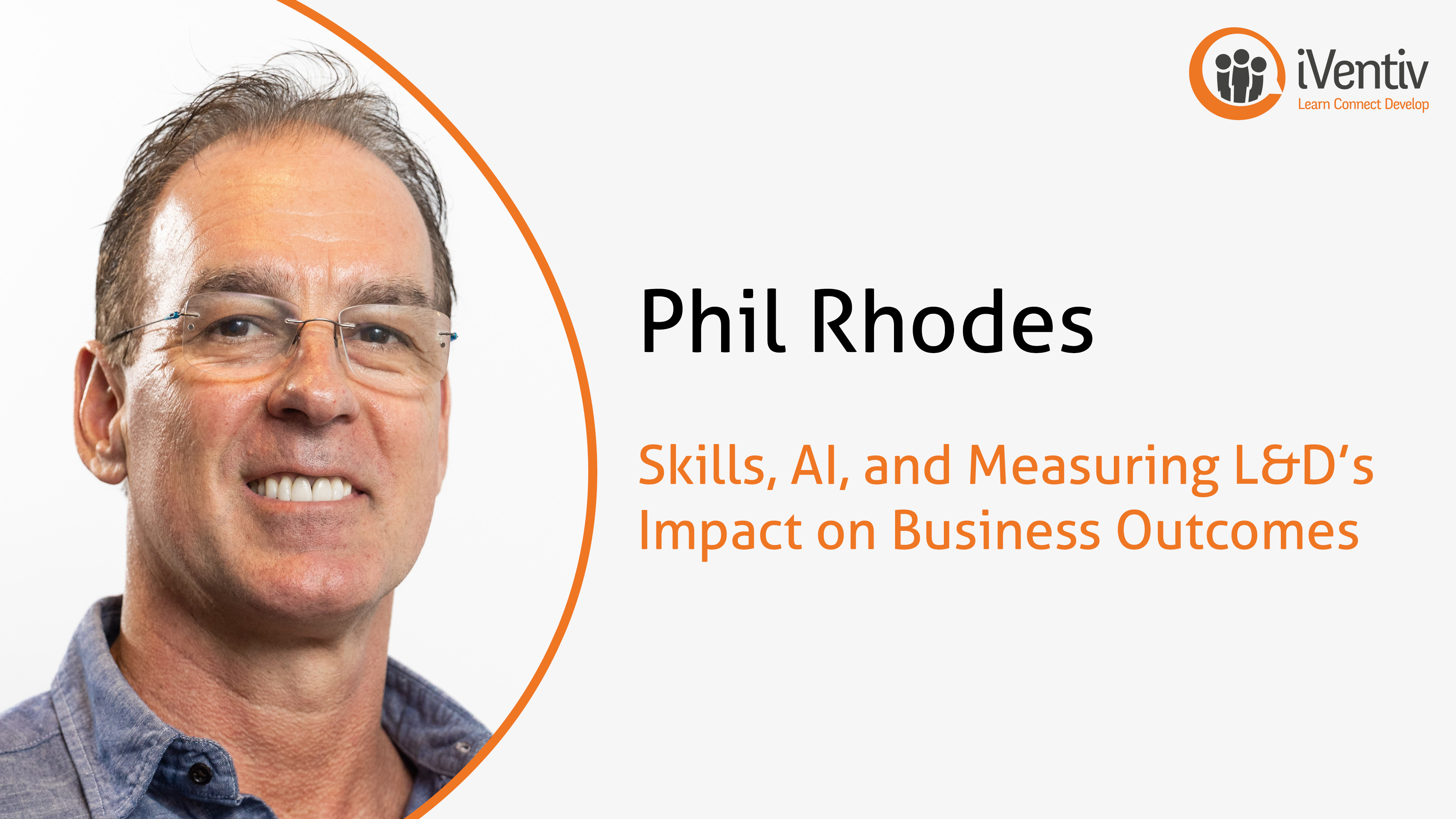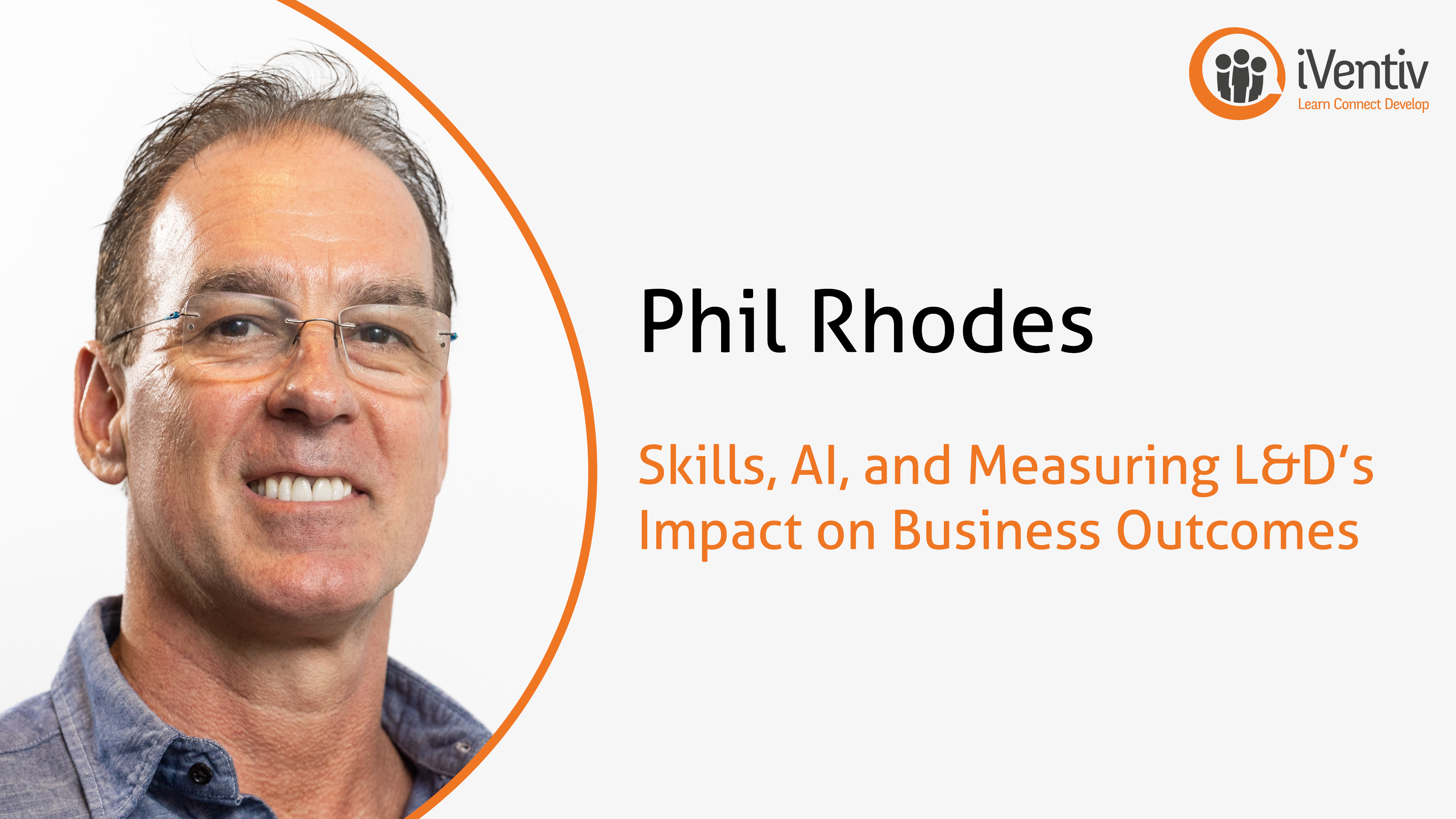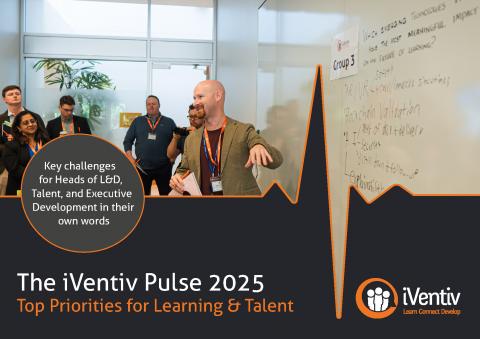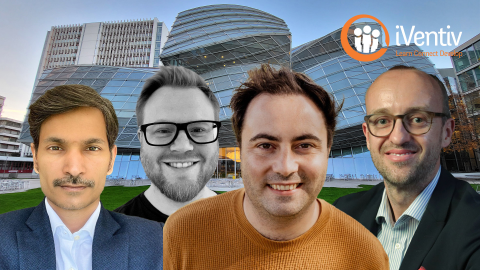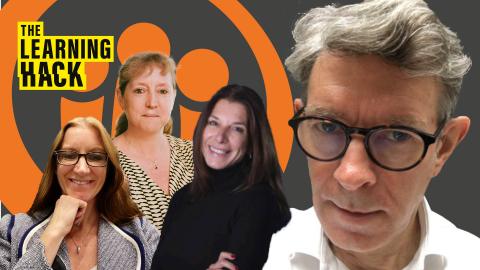Submitted by networkadmin on
Phil Rhodes, Head of Learning and Leadership Development at WM, will be facilitating a breakout session on Day One of iVentiv's Learning Futures New York, hosted by MetLife and bringing together learning leaders from companies including GE, Citi, and Tiffany & Co. Ahead of his session, Phil spoke to iVentiv about his session and his perspective on the trends that are shaping L&D.
What is the subject of your upcoming iVentiv session, and what themes are you most looking forward to discussing?
My session at Learning Futures New York is all about future-skilling the workforce to meet the needs of our business in these tumultuous times. I’ll be exploring how we, as L&D professionals, can partner with business leaders to proactively identify the skills needed to run the business so that lay-offs and gaps in skill set do not exist. Rather than recruiting and chasing employees with the skills that the business needs, how can we invest in existing employees to close the skill-gap proactively?
Which trend in HR do you think is going to grow the most over the next twelve months?
For me, the real areas of growth are skills-based training and new talent management practices. As I’ll be exploring in my session in New York, the skills landscape is changing and the tools available to develop and identify talent are going to change significantly. How do we leverage artificial intelligence in learning to personalize training to the point of skill need for employees, teams, and organizations?
What book, article, or blog that you’ve read recently would you recommend for senior leaders in learning, talent, and executive development?
There was an article by Christopher Graves in the Harvard Business Review called ‘Generative AI Can Help You Tailor Messaging to Specific Audiences and New-Collar Workforce’ in February that I would highly recommend to HR professionals.
Graves is the President and Founder of the Ogilvy Center for Behavioural Science and an expert in behavioural science. In the article, he looks at how generative AI tools like ChatGPT can help us communicate more effectively and with more empathy. “With the right prompts, and familiarity with the right behavioral science concepts,” Graves says, “leaders can use generative AI tools to speak more directly to specific audiences.” That includes accounting for your company culture, individual personality traits, and worldview. For HR professionals and leaders, it’s a great insight into how we communicate with employees about corporate challenges.
If you could go back in time, what one piece of advice would you give yourself on the first day of your career in HR?
If I could go back in time, I’d say share your whole self as an HR professional. You should be modelling this as a person, professional, and team member to allow others to do the same. And, don’t shy away from measuring business outcomes from HR programs – there is a direct correlation!
Phil Rhodes, Head of Learning and Leadership Development, WM
Phil Rhodes is a Senior Executive who specializes in leveraging the latest technologies and processes to drive large-scale transformational change programs that deliver multimillion-dollar growth across highly competitive industries such as technology, hospitality, and environmental services. This experience – coupled with his strategic leadership and relationship management skills – has enabled him to thrive as a growth-oriented executive coach and workforce development leader. He has specific expertise in crafting dynamic Learning and Development (L&D) solutions that enable data-driven decision-making and help employees reach their full potential. Today he serves as the Head of Learning & Leadership Development at WM, the largest environmental services company in North America, and is a frequent conference keynote speaker on topics ranging from organizational effectiveness, leadership development, change management, and learning trends.
